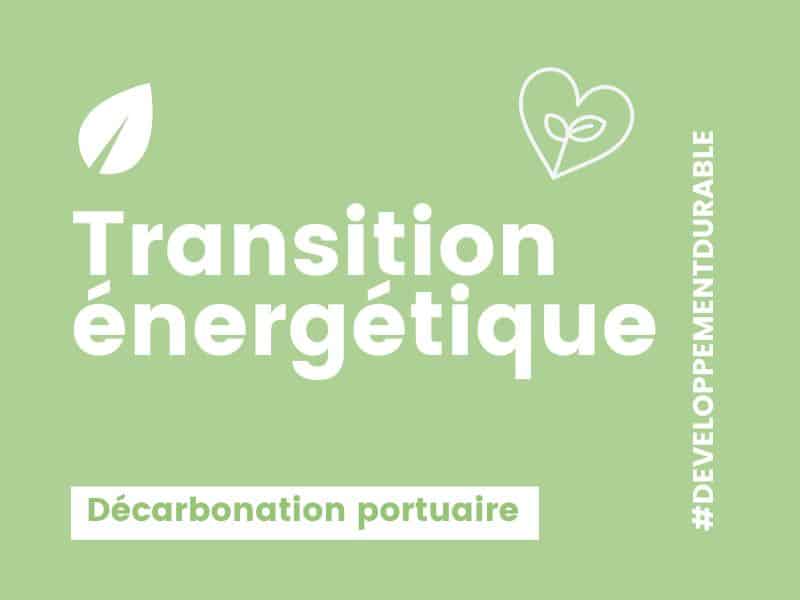
First edition of the TEM Prize
The Port of Sète-Frontignan 1st Prize for Maritime Energy Transition!
Created in 2020 by the Marine Academy and Soper, the TEM (Maritime Energy Transition) Prize is designed to encourage initiatives towards a low-carbon transition in the maritime sector. Every year, it rewards a player (individual, company or institution) who has a project, thesis or study to offer concrete solutions to the challenges posed by decarbonization of the maritime sector.
2020 edition, the Port of Sète-Frontignan wins – #PrixTEM
Delayed by the Covid 19 health crisis, the first edition of the TEM Prize was held on Thursday June 3, 2021 in Sète. Jean-Claude Gayssot, President of the Port of Sète-Frontignan for the Occitanie Pyrénées-Méditerranée region, was presented with the Maritime 2020 Energy Transition prize by Xavier de la Gorce, President of the Académie de Marine and Jean-Michel Germa, President of Soper. The ceremony was broadcast live on the Port de Sète-Frontignan YouTube channel.
The winner of this first edition, the Port of Sète-Frontignan, is rewarded for its numerous initiatives in favour of the decarbonization of its port activities, some of which have been implemented within the framework of the 2015-2020 strategic project:
– In 2020, the port became a “positive energy” port thanks to the photovoltaic roofing of 64,000 m2 of port hangars, producing the equivalent of 2.5 times the annual consumption of the Port Sud de France operation across its 3 ports.
– Installation of shore power connections to accommodate very large yachts in the commercial port.
– Renewal of the port’s vehicle fleet with electric vehicles (service cars, vans, passenger shuttles, bicycles, etc.).
– A study and monitoring of intra-port marine biodiversity.
– A study and monitoring of air quality, with the recent signing of a partnership with ATMO Occitanie.
– A Zero-Plastic corporate approach and regular awareness-raising campaigns for the port community thanks to our partnership with the association le 7ième Continent.
– A pricing policy designed to favor the most environmentally efficient ships, applied according to their ESI (Environmental Ship Index).
This commitment has been further intensified with the launch of the 2021-2025 strategic project, under which the “Smart and green port” approach gives priority to the port’s technological and environmental ambitions:
– Development of multimodal transport with the delivery of the new rail hub in summer 2021 and the launch of the Sète-Calais rail freeway.
– Development of multimodal transport with the project to modernize the Rhône-Sète canal to improve river transport.
– Delivery of new electrically-powered rail-mounted cranes coupled with a dust collection hopper by the end of 2021.
– Phase II photovoltaic project: 20 ha of photovoltaic shading planned for 2022, to power imported electric vehicles.
– Platform electrification project from 2023, for regular lines (ferry and ro-ro).
– Green Harbour’ project, a 0-emission, multi-service energy barge supplying green hydrogen to the quayside.
Decarbonization of maritime activities, a major challenge for the years to come – #TransitionEnergétique
The Académie de Marine and SOPER have decided to work together to promote the energy transition in the maritime sector, with the shared aim of awarding a joint prize each year to a natural or legal person whose action has been decisive in this field.
Maritime transport is a strategic activity: over 80% of world trade by volume is carried by ship and transits through ports. To transport these goods, sea transport consumes around 330 million tonnes of fuel every year, and generates 3% of the world’s anthropogenic CO2 emissions, i.e. around 900 million tonnes/year. By 2050, shipping’s share of CO2 emissions will have risen to over 12% of global emissions.
There are two types of solutions for decarbonizing maritime transport:
- Technical and operational solutions. Around 60% of the reduction in CO2 emissions from the world fleet will come from the use of non-fossil fuels (synthetic fuels, electric fuels, etc.), with the remaining 40% coming from the decarbonization of port activities, optimization of ship design and operation, and the use of diesel or electric propulsion.
- Non-technical support resources. These resources are not intended to be mobilized for more than a few decades: that’s the energy transition. They all depend on political will and public action. The most common means of support are subsidies, regulation and taxation. All three can be used simultaneously…
By analogy, the successful worldwide experience of decarbonizing electricity production (wind, PV) leaves us in no doubt as to the success of decarbonizing maritime transport. But we’re going to have to get two worlds to work together and change the way they collaborate: the world of the sea and the world of energy. The decarbonation activities at the port of Sète-Frontignan, awarded the TEM Prize, are a successful example of this convergence.






